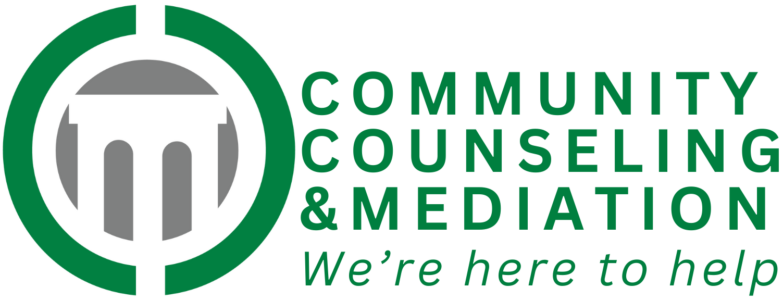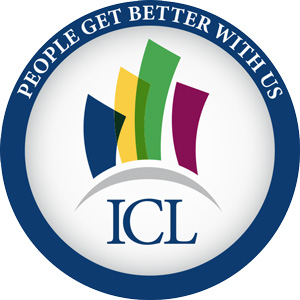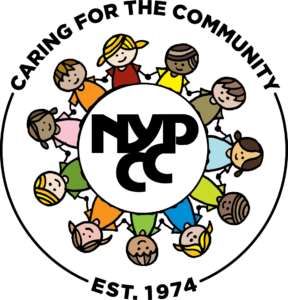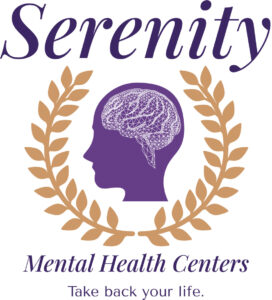-
Treating Depression in Pregnancy Is Lifesaving—Here’s What the FDA Panel Got Wrong
This week, the FDA held an unbalanced and largely inaccurate panel discussion on SSRI use during pregnancy. Of the 10 presenters on the panel (three from outside the U.S.), only one represented the robust body of research demonstrating the safety and efficacy of taking SSRIs during the perinatal...
-
Collaborating for Change: Building a Stronger System of Maternal Mental Health Support in New York
Effectively addressing maternal mental health requires a comprehensive public health solution that targets risk and protective factors. These include social determinants of health, clinical care, community support, culturally responsive interventions, and policy changes. This is why the New York...
-
Expanding Perinatal Mental Health Care in NYC: Advancing Equity and Family Well-Being
Perinatal mental health—the emotional and psychological well-being of individuals during pregnancy and the postpartum period—is a growing public health concern. In New York City, behavioral health conditions are among the leading underlying causes of pregnancy-related deaths. According...
-
Confronting Racial Inequalities in Maternal Mental Health in Indigenous Women
It is well known that Indigenous populations such as Native Americans (N.A.) often have limited access to healthcare and suffer from health disparities and inequities in care. This is especially true of N.A. women suffering from maternal mental health issues such as postpartum depression (PPD)...
-
From Silence to Support: How Doula Care Can Destigmatize Maternal Mental Health
Motherhood is often framed using this narrative of a “strong mother”—of self-sacrifice, resilience, perseverance, and unwavering devotion. They are expected to give endlessly, to find joy in every sleepless night, and to cope quietly with the unexpected realities of their new identity. While...
-
Project TEACH: A Perinatal Psychiatry Access Program Transforming Maternal Mental Healthcare in New York State
Maternal mental health conditions are one of the most common complications of pregnancy and birth, affecting one in five perinatal individuals (1,2) and 800,000 families annually in the United States, with 75% of those affected remaining untreated or undertreated (2). Mental health conditions are...
-
The Silent Barrier: How Fear of Judgment from Healthcare Providers Keeps People from Seeking Help
What if the person meant to help you was the one you feared most? Imagine sitting in an exam room, fidgeting with your cell phone, scrolling through apps, and trying to distract yourself from the anxiety building inside. You are aware of the antiseptic smell lingering in the air, but it’s drowned...
-
Improving Safety with Technologies in Maternal Mental Health
Maternal mental health is increasingly recognized as a cornerstone of family well-being and a critical area for innovation in modern healthcare. Each year, thousands of women experience perinatal mood and anxiety disorders (PMADs), including postpartum depression, anxiety, and postpartum psychosis....
-
Findings from New York State’s Report on Postpartum Depression Screening
Postpartum depression (PPD)—the most common perinatal mood and anxiety disorder—is a debilitating condition affecting at least one in eight people who give birth. PPD is more than just the “baby blues.” It is a more severe mood disorder that can last for many months. PPD may impair a...
-
Confronting Mental Health Stigma in Maternal Care
Mental health stigma—those persistent negative attitudes, beliefs, and stereotypes about mental illness—remains a powerful barrier to care. When these perceptions translate into actions in our society, they become discrimination, and this limits opportunities for healing. Even though mental...
-
Dismantling Structural Stigmatization Through Organizational Transparency, Accountability, and Leadership
In the Summer 2022 edition of Behavioral Health News, my colleague, Jayden Carr, BS, and I wrote an article reviewing the most common forms of stigmatization and their negative effects on people with mental illness and substance use disorders (MI/SUD). The term “stigmatization” rather than...
-
Supporting Maternal Mental Health and Reducing Stigma: A Clinical Perspective
Becoming a mother is a beautiful and rewarding experience, but it comes with a set of challenges that often go unrecognized. Maternal mental health is a critical dimension of perinatal care that is often overlooked amid the focus on the physical aspect of pregnancy. During the perinatal period,...
-
“I Should Be Able to Handle This”: How Internalized Stigma Silences Moms
There’s a shared assumption in health care that if we make services more accessible, patients will use them. It’s the foundation of many well-intentioned interventions: Add depression screening to the six-week postpartum visit, embed a therapist in the OB/GYN clinic, expand access through...
-
NYSPA Report – Biomarkers for Perinatal Mood and Anxiety Disorders: A Way to Reduce Stigma
The numbers are so depressing. The United States has the worst maternal mortality of any developed country, with a racial disparity that is shocking.[1] Mental health conditions are one of the leading causes of pregnancy-related death – in some places, THE leading cause.[2] We do a dismal job of...
-
Generations of Motherhood: How Mental Health Changes Over Time
One in five mothers is affected by a mental health condition, and 75% of women impacted by maternal mental health conditions remain untreated, increasing the risk of long-term negative impacts on mothers, babies, and families. 1 The effects aren’t just heartbreaking; they’re far-reaching. When...
-
Voices of Hope and Healing: Parental Mental Health Peer Support Program for New York Families
Perinatal mood and anxiety disorders, including postpartum depression (PMADs), are the most frequent complication related to childbearing and a leading cause of maternal mortality in New York State.1 PMADs affect up to 20% of birthing persons and new mothers. Also, up to 13% of fathers may...
-
Maternal Mental Health Is Societal Health
An emerging crisis in maternal mental health may be attributed to innumerable causes, many of which have been implicated in other behavioral health crises. Recent epidemics of Suicidality and Substance Use Disorder are the most notable and tragic manifestations of human distress that attend the...
-
America’s Hidden Maternal Mental Health Crisis
There is a quiet but growing crisis unfolding in America. It is the steady erosion of maternal mental health. New national data underscore what so many families and clinicians already know: U.S. mothers are struggling, and the supports meant to sustain them are lagging behind. A recently...
-
Supporting Maternal Mental Health in the Workplace: Policies, Practices, and Culture Change
As more women navigate pregnancy and early motherhood while continuing their careers, organizations must recognize that mental health support during the perinatal period is critical to employee wellness, engagement, and retention. Untreated perinatal mental health conditions, including depression,...
-
She Carries More Than a Child: The Psychological Burden of Unhealed Trauma
Motherhood starts way before a woman discovers that she is pregnant. Rather, research suggests that a person’s projected pathway into motherhood starts as soon as their own infancy. The type of attachment, connection, and personal experiences that a child is exposed to during their first five...
-
Beyond the Baby Blues: Understanding the Impact of Codependency in Maternal Mental Health
Have you ever found yourself lying awake at night wondering if you're doing enough as a mother, even after giving everything you had that day? Do you constantly second-guess your parenting decisions, compare yourself to other moms, or feel like you're falling short, no matter how hard you...
-
Overcome Stigma with Resources for Support, Rejection, and Accommodations
Mental illness stigma might mean folks inappropriately assume someone living with a mental health condition is dangerous, incapable, or socially undesirable. When those negative attitudes translate into harmful actions, the results can be devastating. Stigma often leads to friends or family pulling...
-
The Role of Partners in Supporting Mothers with Postpartum Depression
Postpartum depression (PPD) is classified by the Diagnostic and Statistical Manual of Mental Disorders, Fifth Edition (DSM-5) as a major depressive disorder with peripartum onset. It is characterized by persistent sadness, anxiety, fatigue, and difficulties in emotional bonding with the newborn....
-
The Generational Transmission of Untreated or Unresolved Relational Trauma
She leaned in close to me, whispering as if we were girlfriends rather than therapist and client: “I’m trying to get pregnant because then I’ll have someone who will love me forever and never leave me.” How do I, as a compassionate therapist, gently explain to this 13-year-old girl that...
-
Addressing the Stigma of Perinatal Mood and Anxiety Disorders
When I had my son in 2024, I had more than a few medical professionals warn me that due to my anxiety pre-pregnancy, I was at greater risk for developing a perinatal mood disorder (PMD), specifically postpartum anxiety (PPA) and/or postpartum depression (PPD). I was warned to contact someone if I...
-
No One Forgotten: Sharing Love with Hospitalized Mental Health Patients
The psych ward can be an unbearably lonely place. We’re often alone with our thoughts and reflections on relapses, struggles, disappointments, and hopelessness. I know. I’ve been there. I’ve suffered from severe bipolar I disorder with psychosis for over 25 years. Mental health crises landed...
-
Teen Mothers: When Stigma Trumps Compassion (and Research)
Key points: Many teen mothers succeed but do so despite the stresses that stigma imposes on them. Stresses on both mothers and babies are associated with severe health consequences, sometimes affecting their entire lives. Healthcare providers are often experienced as stigmatizing by teen...
-
Resisting Unjust Algorithms: Lessons from Maternal Health for Youth Mental Health and Education
In previous installations of this column, I have written about how communities of youth harmed by systemic oppression and inequities rely on peer-to-peer models of care on social media to meet healthcare, safety, and support needs when institutions fail to do so. Namely, queer youth are engaging in...
-
From Silence to Support: Changing the Story on Maternal Mental Health
When I became a mother, I was prepared for a momentous life change. What I did not anticipate was the impact that pregnancy and postpartum could have on my mental health, in addition to my physical recovery. After giving birth to my first daughter, I dismissed my stress and sensitivity as the...
-
Trusted, Trained, and Too Often Overlooked: The Role of Holistic Providers in Maternal Mental Health
The perinatal period is a critical window of vulnerability and opportunity. Research shows that up to 20% of women experience a mental health disorder during pregnancy or in the first year postpartum, including depression, anxiety, and post-traumatic stress disorder (Howard et al., 2014). Without...
-
The Impact of Childhood Separation: Parallels Between Children of Parents with Mental Illness and Children of Incarcerated Parents
Family separation is a traumatic experience for children, regardless of the cause. When separation occurs due to parental mental illness or incarceration, children face unique psychological and systemic challenges that are often overlooked. Both groups experience disenfranchised grief, attachment...
-
Voice and Identity: Daughters and Sons of Parents with Psychiatric Experiences
Parenting with a mental health condition is common, yet widely unsupported. The following statistics may surprise you: according to Joanne Nicholson of Brandeis and Kate Beibel at the University of Massachusetts Medical School, 68% of women and 57% of men with diagnosed psychiatric disorders are...
-
Reframing Residential Treatment: Preventing Family Separation and Supporting Women with Substance Use Disorders
According to the 2023 National Survey on Drug Use and Health, 70.5 million people used illicit drugs in the past year, and 48.5 million of them met the criteria for a substance use disorder (SUD). In 2022, 32.6 million women reported illicit drug use, and while men have historically shown higher...
-
Addressing America’s Silent Crisis: Maternal Mental Health
Maternal mental health in the U.S. is in crisis. Despite advancements in medicine and growing awareness around mental health, the emotional well-being of mothers has quietly deteriorated. This is particularly true during pregnancy and after childbirth. A recent study published in JAMA...
-
The Silent Struggles of Fertility: Understanding the Emotional Toll
When a woman embarks on the journey of fertility care, she enters a world filled with hope, uncertainty, and an emotional burden not always perceptible to others. The medical procedures and clinical visits are only part of the experience—behind closed doors, many face silent struggles that take a...
-
Addressing Maternal Mental Health Through Connection and Care
The Transition Into Motherhood Becoming a mother is a profound transition—one that reshapes how a person sees themselves, their priorities, and their relationships. It’s a shift that can feel expansive and deeply meaningful, but also disorienting. With so much focus on the baby, it’s easy...
-
The Super Mom Myth: Why Resilience Alone Is Not Enough
The baby’s cry pierces the morning silence. The coffee's gone cold. It’s 6:30 in the morning. Lilly stands in her kitchen, making breakfast. One hand is stirring her oatmeal, while her other hand scrolls through the work messages she has to deal with. A cartoon is playing in the background to...
-
Maternal Mental Health: Reducing the Stigma Through AI
Maternal depression affects approximately 1 in 5 women in the United States. For many, their struggles go undetected and untreated. It's critical that we acknowledge both the prevalence of this condition and the innovative solutions emerging to address it. The lack of diagnosis of postpartum...
-
Transcranial Magnetic Stimulation (TMS) is a Safe, Drug-Free Option for Postpartum Depression Relief
Postpartum depression (PPD) affects one in seven women, yet too many mothers suffer in silence. Stigma, fear of medication side effects, or simply not knowing about effective alternatives often keep them from getting the help they need. But here’s the good news: you don’t have to choose...














